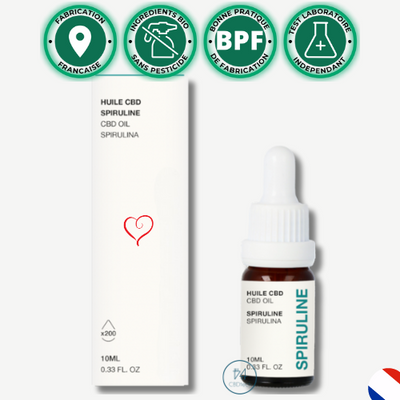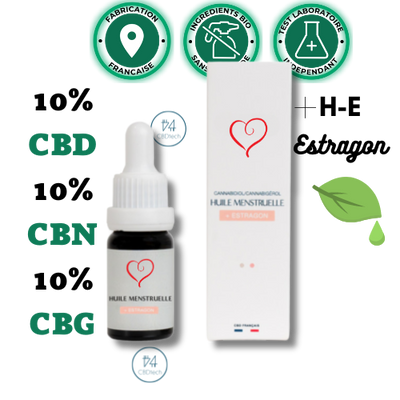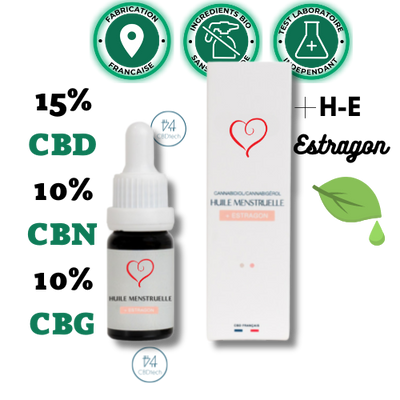Adaptogenic Oils: Focus, Serenity, Aphrodisiac
FOCUS
Adaptogenic Oils for Focus
Adaptogenic oils are plant or mushroom extracts that help the body adapt to stress and improve cognitive function. To improve concentration, mental clarity and memory, the following oils are particularly effective:
Ashwagandha (Withania somnifera) : This adaptogenic herb reduces cortisol levels, improves resistance to stress and supports cognitive functions by regulating the hypothalamic-pituitary-adrenal (HPA) axis.
Lion's Mane (Hericium erinaceus) : This mushroom stimulates the production of nerve growth factor (NGF), promoting neurogenesis and synaptic plasticity, which improves memory and concentration.
Reishi (Ganoderma lucidum) : This mushroom is known for its calming and immunomodulatory properties. It improves mental clarity by reducing stress and supporting neuronal health.
Mechanisms of Action
Ashwagandha : Modulates the HPA axis, thereby reducing cortisol levels and improving the stress response, while supporting cognitive functions.
Lion's Mane : Stimulates the synthesis of NGF, promoting neuron regeneration and improving synaptic connectivity.
Reishi : Increases levels of GABA, an inhibitory neurotransmitter that promotes relaxation while supporting brain health.
Practical Tips
Dosage : Ashwagandha is generally taken at 300-600 mg per day. Lion's Mane is dosed at 500-1000 mg per day, and Reishi at 500-1000 mg per day.
Application Methods : These oils can be taken in capsule form, tinctures, or added to drinks. For optimal absorption, take them with meals.
Synergies : Combine Ashwagandha with Lion's Mane and Reishi for a synergistic effect on cognition, stress reduction and mental clarity.
Drug Interactions
Ashwagandha : May interact with sedatives and thyroid medications.
Lion's Mane : May interact with anticoagulants due to its antiplatelet properties.
Reishi : May interact with anticoagulants and immunosuppressants.
Scientific References
Ashwagandha : Chandrasekhar et al., 2012
Lion's Mane : Mori et al., 2009
Reishi : Wachtel-Galor et al., 2011
SERENITY
Adaptogenic Oils for Serenity
Adaptogen oils can help reduce anxiety, improve sleep, and promote a state of calm. The following oils are particularly effective:
Lion's Mane (Hericium erinaceus) : In addition to its cognitive benefits, Lion's Mane supports emotional health by reducing neuronal inflammation and promoting brain cell regeneration.
Shiitake (Lentinula edodes) : This mushroom is rich in antioxidants and anti-inflammatory compounds that support the nervous system and reduce oxidative stress.
Reishi (Ganoderma lucidum) : Reishi is a powerful adaptogen that promotes relaxation, improves sleep quality, and reduces anxiety by increasing GABA levels.
Mechanisms of Action
Lion's Mane : Reduces neuronal inflammation and supports brain cell regeneration, promoting a state of calm.
Shiitake : Combats oxidative stress and supports the immune system, which helps reduce overall stress.
Reishi : Increases levels of GABA, an inhibitory neurotransmitter that promotes relaxation and reduces anxiety.
Practical Tips
Dosage : Lion's Mane is usually taken at 500-1000 mg per day. Shiitake is dosed at 500-1000 mg per day, and Reishi at 500-1000 mg per day.
Application Methods : These oils can be taken in capsule form, tinctures or used in aromatherapy. For optimal absorption, take them in the evening before bedtime.
Synergies : Combine Lion's Mane with Shiitake and Reishi for a synergistic effect on reducing stress, improving sleep and promoting a state of calm.
Drug Interactions
Lion's Mane : May interact with anticoagulants.
Shiitake : May interact with immunosuppressants due to its immunostimulating properties.
Reishi : May interact with anticoagulants and sedatives.
Scientific References
Lion's Mane : Mori et al., 2009
Shiitake : Finimundy et al., 2014
Reishi : Wachtel-Galor et al., 2011
APHRODISIAC
Adaptogenic Oils for Aphrodisiac
Adaptogen oils can support libido, improve sexual performance and balance hormones. The following oils are particularly effective:
Ginseng (Panax ginseng) : This powerful adaptogen improves blood circulation, increases energy, and supports sexual function by regulating nitric oxide levels.
Muira Puama (Ptychopetalum olacoides) : Also called "potency plant", Muira Puama is traditionally used to stimulate libido and improve sexual performance.
Cordyceps (Cordyceps sinensis) : This mushroom improves endurance, increases ATP (cellular energy) production, and supports reproductive health by balancing hormones.
Mechanisms of Action
Ginseng : Increases nitric oxide production, thereby improving blood circulation and supporting erectile function.
Muira Puama : Stimulates the central nervous system, increasing libido and improving sexual performance.
Cordyceps : Increases ATP production and supports hormonal balance, improving endurance and sexual vitality.
Practical Tips
Dosage : Ginseng is usually taken at 200-400 mg per day. Muira Puama is dosed at 300-600 mg per day, and Cordyceps at 500-1000 mg per day.
Application Methods : These oils can be taken in the form of capsules or tinctures. For optimal absorption, take them with meals.
Synergies : Combine Ginseng with Muira Puama and Cordyceps for a synergistic effect on libido, stamina and sexual performance.
Drug Interactions
Ginseng : May interact with anticoagulants and diabetes medications.
Muira Puama : May interact with stimulants by increasing nervous system excitation.
Cordyceps : May interact with immunosuppressants due to its immunostimulating properties.
Scientific References
Ginseng : Murphy et al., 1998
Muira Puama : Waynberg, 1994
Cordyceps : Zhu et al., 1998
General Questions
Interactions and Precautions
Can adaptogenic oils interact with medications?
Yes, some adaptogenic oils can interact with medications. For example, Reishi and Lion's Mane may interact with blood thinners, while Ashwagandha may interact with sedatives. Always consult a healthcare professional before using them.
Are adaptogenic oils safe during pregnancy?
It is recommended to avoid adaptogenic oils during pregnancy or breastfeeding unless advised otherwise by a healthcare professional. Some plants can have unpredictable effects on fetal development.
Are there any possible side effects?
Side effects are rare but may include stomach upset, headache, or allergic reactions. Always start with a low dose to test your tolerance.
Need more information?
If you have further questions about adaptogenic oils, please do not hesitate to consult a healthcare professional or visit CBDTech to discover their high quality adaptogenic products.












